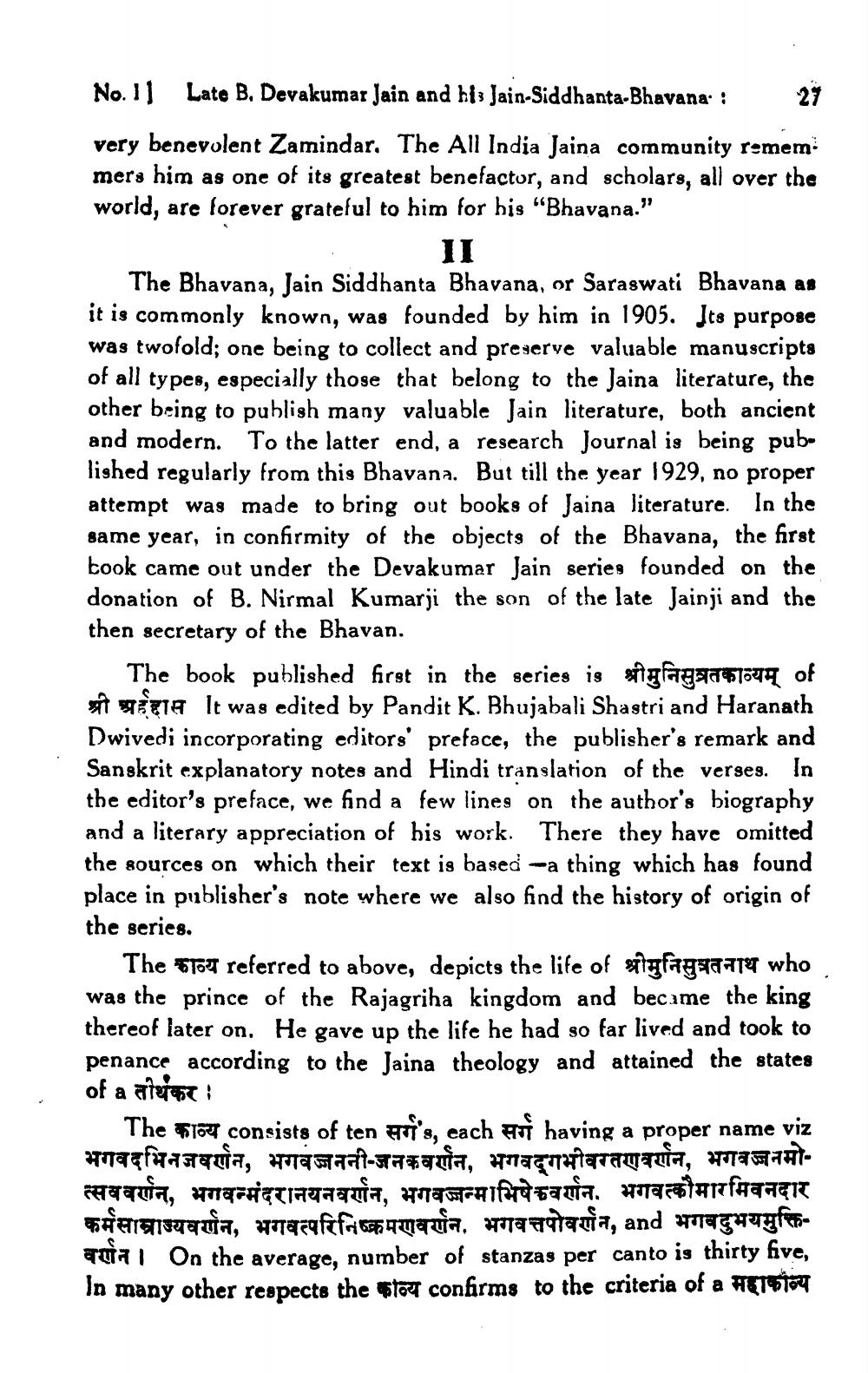________________
No. 11 Late B. Devakumar Jain and his Jain-Siddhanta-Bhavana :
very benevolent Zamindar. The All India Jaina community remem mers him as one of its greatest benefactor, and scholars, all over the world, are forever grateful to him for his "Bhavana."
11
27
The Bhavana, Jain Siddhanta Bhavana, or Saraswati Bhavana as it is commonly known, was founded by him in 1905. Its purpose was twofold; one being to collect and preserve valuable manuscripts of all types, especially those that belong to the Jaina literature, the other being to publish many valuable Jain literature, both ancient and modern. To the latter end, a research Journal is being published regularly from this Bhavana. But till the year 1929, no proper attempt was made to bring out books of Jaina literature. In the same year, in confirmity of the objects of the Bhavana, the first book came out under the Devakumar Jain series founded on the donation of B. Nirmal Kumarji the son of the late Jainji and the then secretary of the Bhavan.
The book published first in the series is श्रीमुनिसुव्रतकाव्यम् of 1 It was edited by Pandit K. Bhujabali Shastri and Haranath Dwivedi incorporating editors' preface, the publisher's remark and Sanskrit explanatory notes and Hindi translation of the verses. In the editor's preface, we find a few lines on the author's biography and a literary appreciation of his work. There they have omitted the sources on which their text is based a thing which has found place in publisher's note where we also find the history of origin of the series.
The
referred to above, depicts the life of fagaaaa who was the prince of the Rajagriha kingdom and became the king thereof later on. He gave up the life he had so far lived and took to penance according to the Jaina theology and attained the states of a तीर्थकर
The
consists of ten 's, each having a proper name viz भगवदभिनजवर्णन, भगवज्जननी जनकवर्णन, भगवद्गभीवर तणवर्णन, भगवज्जनमोत्सव वर्णन, भगवन्मंदरानयनवर्णन, भगवज्जन्माभिषेकवर्णन. भगवत्कौमारमिवनदार कर्मसाम्राज्यवर्णन, भगवत्परिनिष्क्रमणवर्णन, भगवत्तपोवर्णन, and भगबदुभयमुक्तिOn the average, number of stanzas per canto is thirty five, In many other respects the confirms to the criteria of a




